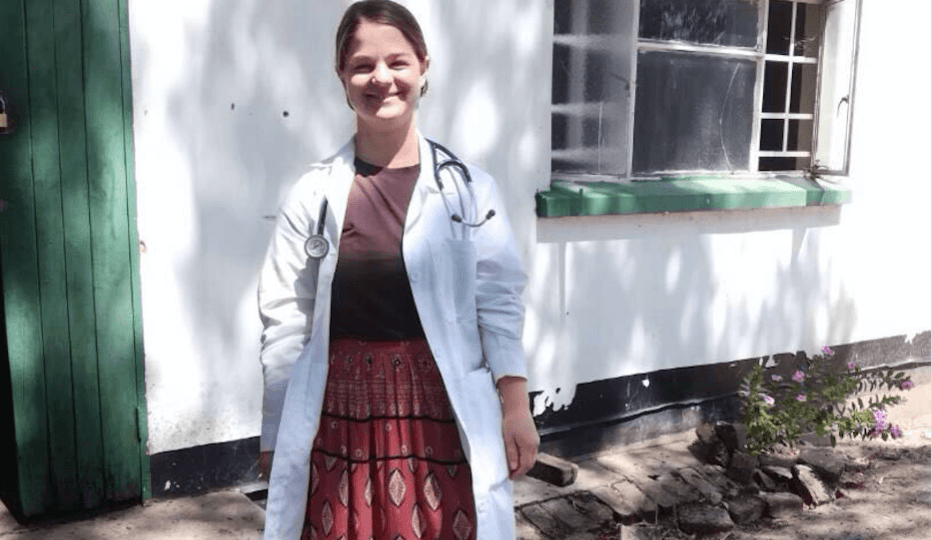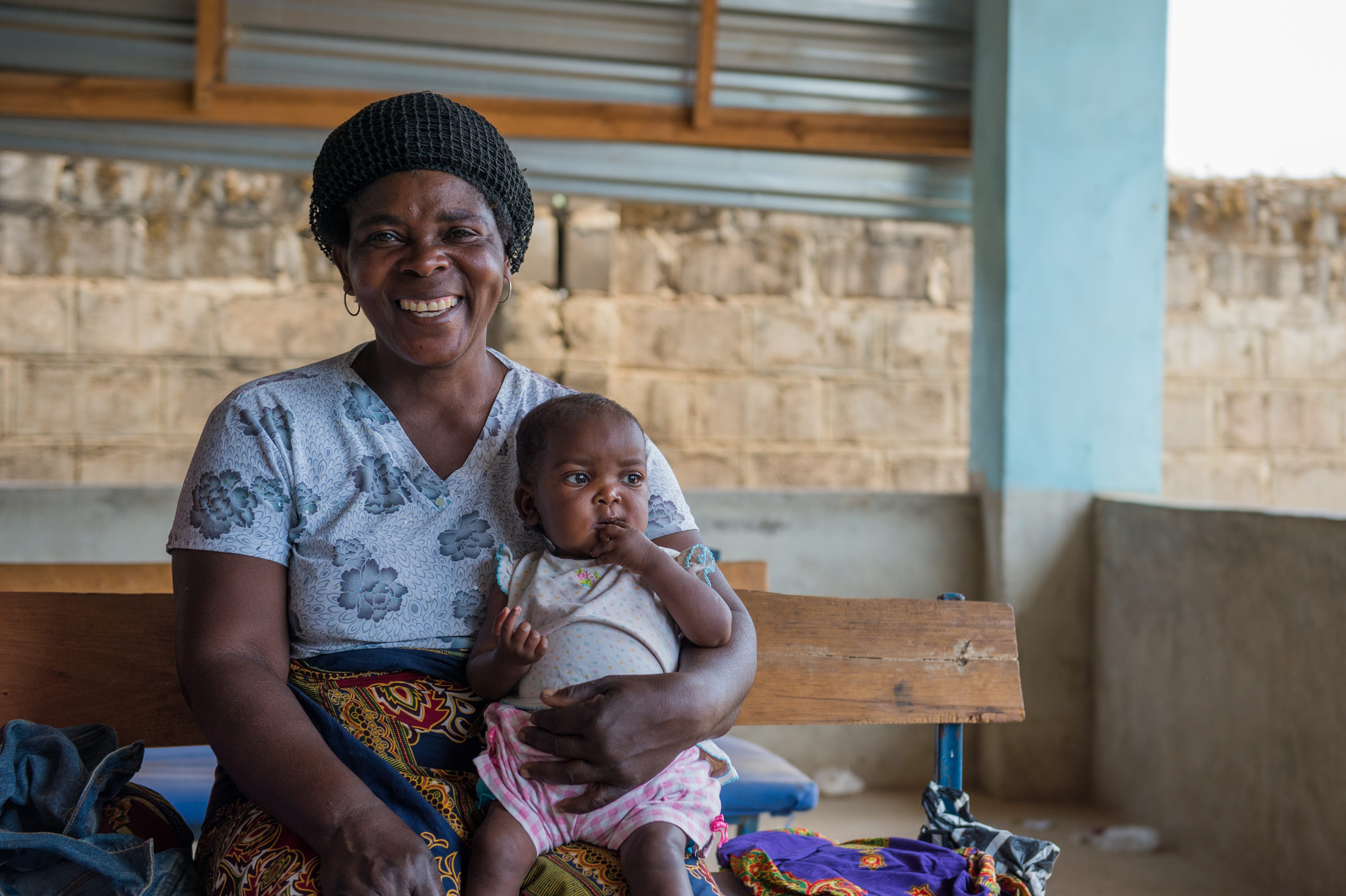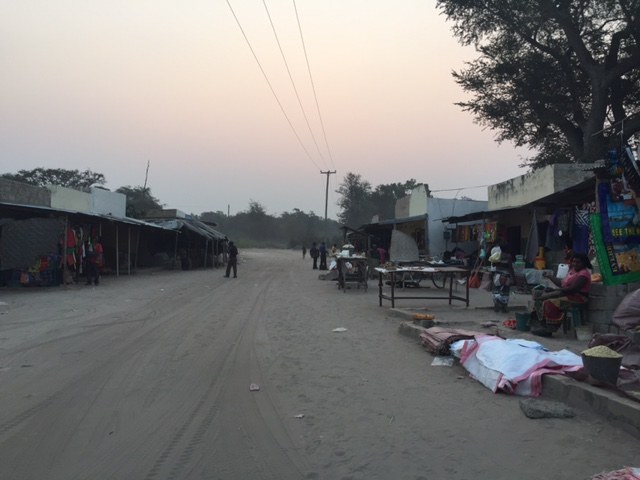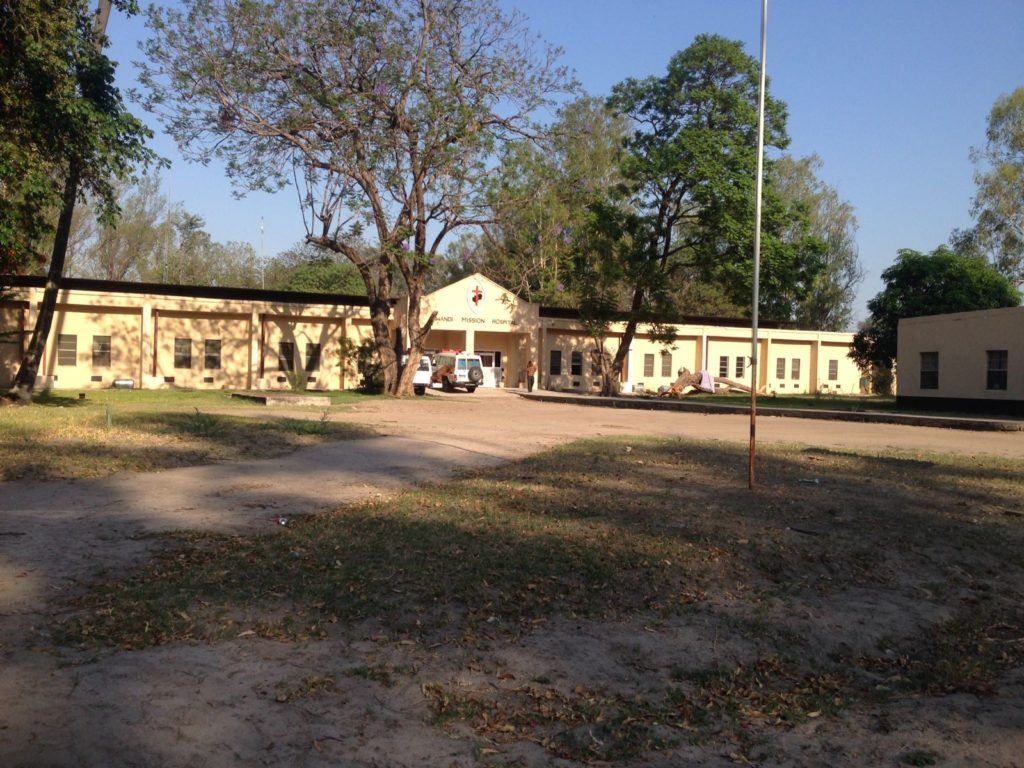Mwandi First Impressions

Stephanie Summa is a physician assistant from Rochester, NY who is currently serving at Mwandi Mission Hospital in Zambia. Here she shares about her first impressions in Mwandi.
I feel like I should set the scene for future blog posts as I am no longer in the big city (Lusaka) but down in one of the more remote parts of the country; the rural villages of Mwandi.
To be honest, Mwandi doesn’t feel too different from small towns in the United States.
There is one main street lined with most of the local shops, including a small store with basic groceries, one restaurant, a vegetable market, a fish market, and a variety of other small room stores for clothing, household goods, and building supplies.
Off this main road (the only paved road in the town) branch numerous roads and paths all made of sand as Mwandi is on the banks of the Zambezi River. These roads and paths primarily lead to homes, a majority of which are made of mud.
If you take the widest road to the right you will pass Mwandi Mission Hospital. The hospital is composed of an inpatient and outpatient ward and a variety of clinics dedicated to Maternal and Child Health, HIV, and Tuberculosis.
On my first day of work, I was toured around the hospital by Ms. Mumbati, a Medical Licentiate. There is no equivalent in the US health system, but consider her a mix between a physician assistant, nurse practitioner and a doctor. After seeing the facility itself, I was on the morning rounds in the inpatient department. The inpatient portion of the hospital is divided into four areas- a male ward, pediatric ward, a maternity ward, and female ward each with about 10-15 beds in each ward, a shared space. Keep that in mind next time you are in the hospital and sharing a room with just one roommate!
The patients I found in the hospital where no different then the ones I encountered back home, a reminder of our shared humanity. No matter where you are located in the world the body still falls ill and people still need medical care. Just like in the U.S. people have pneumonia, diabetes, cellulitis, gastrointestinal illnesses, and heart failure. Unfortunately, some of the population are more prone to these diseases as their immune systems are weakened by malnutrition, anemia, and HIV- conditions that aren’t as prevalent at home.
Resources are not quite as bounitful, only certain antibiotics and medications are available and are at times out of stock. The x-ray machine and the chemistry machine (which tells your blood’s electrolyte balances, kidney function) are both broken. While the government is aware of the need, it can take years for this equipment to be provided, so the hospital must rely on partners, such as CMMB to help fill some of the gaps.
Despite these challenges the staff is constantly adapting. The drugs they do have available they know in and out, the supplies they have they use diligently not letting a single component going to waste.
In the outpatient clinic 75-200 people pass through daily, coming in with the common cold or severe illnesses requiring hospitalization. These people are seen by the couple of providers available and will sometimes wait all day to be seen. At lunch time, many can be found sitting out on the grass under the trees, eating their food as they know to become prepared for the wait.
Due to the shortage of medical providers and the large volume of patients, I had a day or two of orientation before I was out seeing patients. When I initially volunteered it was with the hope of helping the vulnerable and also having the opportunity to grow as a provider.
But even in my first week it was clear that I would be helped a lot more by the people around me then I will probably help them.

Although Mwandi is technically a village, it has a catchment area of over 23,000 people who seek medical services. There are no cardiology, infectious disease, or OB/GYN consults. If the drug you are looking for is out of stock, it can’t be delivered in the next 8 hours and you can’t try a different pharmacy. If you think the patient needs a small surgical procedure, don’t call a surgeon- go grab the incision and drainage kit and suit up! The medical professionals here have no specialty, they need to know it all.
I am also trying to learn the Lozi language and culture. Unfortunately they don’t have Lozi version of Rosetta stone so it has been all trial and error. I have gotten some of the basics down such as pain (Butuku), Cough (Kufiotola), and greetings (Mucwani). I am not sure what my contributions will be in Mwandi, but I at least know I have made many a person smile as I stumble through their pronounciations!
I am also getting used to the clapping associated with greeting someone. In addition I am a big fan of the wrapped skirts, known as Chitengas, that most women wear as per their tradition.
I still have much to learn from this village in the Western Province of Zambia as I get settled in. I am so grateful for the warm welcome I have received from the hospital staff and the cozy home I get to stay in that overlooks the Zambezi. I am so blessed to have this opportunity to be a part of this community and I eagerly await the experiences that life has in store for me here in Mwandi!

